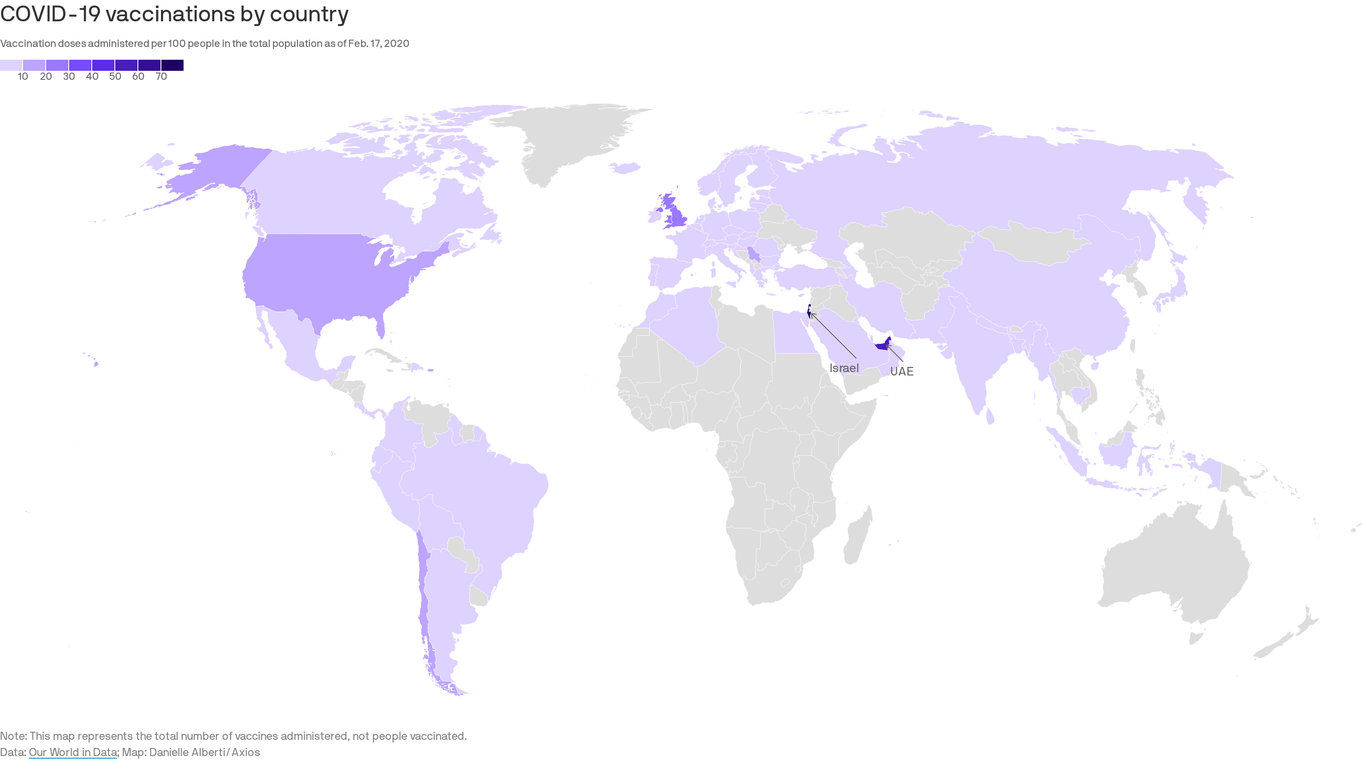You are here
OPINION: Despite problems, America's vaccine rollout has been among the best in the world
Primary tabs
 America's vaccine rollout has been among the best in the world It hasn't been perfect. It could be a whole lot worse. Axios
America's vaccine rollout has been among the best in the world It hasn't been perfect. It could be a whole lot worse. Axios America’s much-maligned vaccine rollout is actually going relatively well, at least compared to other wealthy countries.
The big picture: The U.S. has carried out more vaccinations than any country in the world, and given a first dose to a higher percentage of its population (12%) than all but five countries: Israel, the Seychelles, the UAE, the U.K. and Bahrain.
- In fact, the U.S. is distributing doses three times as quickly as the EU, adjusted for population, and nearly five times as quickly as Canada.
The backstory: The U.S. has some major advantages over most of the world. Not only does America have the money to reserve more doses than it could possibly use, it also has the capacity to manufacture them domestically.
- Canada’s slow rollout and the recent dispute over doses between the EU and U.K. have underlined the difficulties of relying on imports.
- The U.S. also made massive bulk purchases early — through the Trump administration’s Operation Warp Speed — and thus ramped up production capacity while securing its spot at the front of the line.
- The EU moved more slowly both in securing contracts and in approving vaccines, and has paid a price. Israel, by contrast, paid a premium and promised valuable data to get Pfizer’s vaccine early.
- It also helps that the two most effective vaccines on the market were developed entirely (Moderna) or partially (Pfizer/BioNTech) in the U.S.
Between the lines: Despite crumbling infrastructure and chaotic politics, the U.S. remains a scientific, technological and manufacturing powerhouse. That has played to its advantage, as has the sense of urgency with which the U.S. approached the vaccination challenge.
- Some wealthy countries that haven't been hit as hard by the pandemic, like Japan and South Korea, have been much slower to administer vaccines. ...
Yes, but: The U.S. has secured world-leading vaccine supplies, but been somewhat less successful at translating them into actual vaccinations.
- The most impressive rollouts have tended to come in countries with modern, centralized public health care infrastructure, making it easier to identify who's eligible for vaccinations and where to administer them. America's approach has at times appeared clunky by comparison. ...



Recent Comments